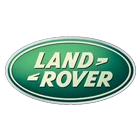
Are Automatic Cars More Expensive?
When it comes to choosing your new vehicle, one of the key points you may consider is whether to opt for manual or automatic transmission. For decades, drivers have engaged in spirited discussions, weighing the pros and cons of each transmission type. Among the arguments often cited is the notion that automatic cars are inherently more expensive than their manual counterparts. But is this widely held belief rooted in fact, or is it merely a persistent myth?
In this article, we’ll delve into the question: Are automatic cars truly more expensive? We’ll explore the difference between manual or automatic vehicles, including costs, and discover the various factors that contribute to this.
Manual vs Automatic Transmission
Manual and automatic transmissions represent two distinct approaches to managing the power delivery from an engine to a vehicle's wheels. Manual transmissions require the driver to manually engage and disengage gears using a clutch pedal and a gear selector. This hands-on approach provides drivers with greater control over the vehicle's acceleration, deceleration, and overall performance.
On the other hand, automatic transmissions offer a more convenient and user-friendly driving experience. Instead of manually shifting gears, automatic transmissions use a hydraulic or electronic system to automatically select the appropriate gear ratio based on factors such as vehicle speed, engine load, and throttle position. This hands-free operation is especially advantageous in stop-and-go traffic, urban driving, or situations where the driver desires a more relaxed driving experience. In summary, the choice between manual and automatic transmissions ultimately boils down to personal preference, driving habits, and budget considerations.
Advantages of Automatic Cars
Automatic vehicles offer a multitude of benefits that appeal to a broad spectrum of drivers. These include:
Ease of Use: Perhaps the most evident benefit of automatic cars is their simplicity and ease of operation. With no clutch pedal or manual gear shifting required, drivers can focus more on the road ahead and less on coordinating complex manoeuvres. This user-friendly interface is particularly advantageous in urban environments or heavy traffic situations, where frequent stopping and starting can become tiresome with a manual transmission.
Reduced Driver Fatigue: Automatic transmissions excel in providing smooth and seamless gear changes, thereby reducing driver fatigue, especially during long journeys or extended periods behind the wheel.
Accessibility: Automatic transmissions make driving more accessible to individuals with physical disabilities or limited mobility. Without the need to manipulate a clutch pedal or shift gears manually, drivers with mobility impairments can experience greater independence and freedom on the road.
Convenience: Automatic cars offer unparalleled convenience in everyday driving scenarios. From effortless hill starts to smooth acceleration in congested traffic, automatic transmissions streamline the driving experience.
Improved Fuel Efficiency: While manual transmissions historically boasted better fuel efficiency due to their mechanical simplicity, modern automatic transmissions have closed the gap significantly. Advanced technologies such as continuously variable transmissions (CVTs) optimise gear ratios and engine performance to deliver impressive fuel economy without sacrificing driving dynamics or comfort.
Drawbacks of Automatic Cars
While automatic cars offer numerous advantages, they also come with their share of drawbacks that may influence a driver's decision-making process. These include:
Licence Restrictions: In the UK, if you have an automatic-only licence, you are legally permitted to operate vehicles equipped solely with automatic transmissions. In such instances, individuals desiring to operate manual vehicles must undergo an additional driving assessment to obtain the necessary permissions on their licence.
Performance Compromises: While automatic transmissions offer smooth and consistent gear changes, they may sacrifice some performance attributes compared to manual counterparts. In scenarios requiring rapid acceleration or precise gear changes, manual transmissions often outperform automatics. Enthusiasts seeking maximum performance and driving dynamics may find automatic transmissions less satisfying.
Higher Costs: Automatic vehicles typically come with a higher upfront cost compared to their manual counterparts. Automatic transmissions are generally more complex than manual transmissions and so repairs can also be more expensive due to the need for specialised tools and expertise.

Why Are Automatic Cars More Expensive?
Automatic cars command a higher price tag than their manual counterparts due to a combination of factors inherent to their design, production, and market demand. Firstly, the manufacturing process for automatic transmissions involves more intricate components and advanced technology compared to manual transmissions. Automatics feature complex hydraulic or electronic systems that facilitate gear changes, torque management, and smooth operation. These components require precision engineering and specialised manufacturing processes, increasing production costs significantly.
Moreover, automatic transmissions often require more frequent maintenance and repairs compared to manual transmissions. The intricate nature of automatic car systems requires specialised expertise and equipment for servicing and repairs, which can translate to higher maintenance expenses over the lifetime of the vehicle. Factors such as fluid changes, solenoid replacements, and valve body repairs can contribute to the overall cost of ownership for automatic cars.
Furthermore, market demand plays a significant role in determining the price of automatics. As consumer preference for convenience and ease of driving grows, the demand for automatic vehicles has increased, often leading to higher prices compared to manual counterparts. That being said, advancements in transmission technology and manufacturing processes have narrowed the cost gap slightly between manual and automatic transmissions in recent years.
Are Automatic Cars More Expensive To Insure?
Yes, automatic cars can be more expensive to insure, though the difference in cost largely depends on the car model, brand, and the driver's history. Generally, the primary reason for higher insurance premiums on automatic vehicles is their higher overall cost. Automatic transmissions are often found in newer or more advanced models, which come with a higher price tag. This increases the cost of repair or replacement parts, making insurers more likely to charge higher premiums to cover potential repairs or replacements.
Additionally, automatics may have more advanced technology and safety features. While these features can make a vehicle safer, the complex technology can be more expensive to repair or replace, contributing to higher insurance costs.
However, in some cases, the difference in premiums might not be significant. Insurance costs are influenced by multiple factors like the car's make, model, age, and the driver’s location and record, so it’s worth comparing quotes to determine the actual cost of insuring an automatic vehicle.
Cheap Automatic Cars
Several automatic cars tend to be more affordable than others, although this can be influences by current special offers available at the time. In particular, these may include the Toyota Yaris, Dacia Sandero Stepway, MG4 EV and Hyundai Tucson.
The MG4 EV is an affordable electric car with an automatic transmission, offering great value for those seeking a budget-friendly, eco-conscious vehicle. With its modern design, spacious cabin, and impressive range, the MG4 EV stands out in the electric car market. It features a smooth automatic drive and advanced tech, making it ideal for daily commuting.
Alternatively, the Dacia Sandero Stepway is a budget-friendly automatic car that offers excellent value for money. With its rugged, SUV-inspired design and spacious interior, it provides practicality without breaking the bank. The car is equipped with a 1.0-litre engine, offering decent fuel efficiency, and its automatic transmission ensures smooth driving, especially in city traffic.
Automatic Car Leasing
Do you require an automatic on a limited budget? Well, sometimes special offers can present an excellent opportunity for individuals seeking a cheap automatic car. Lease deals often have big discounts and low upfront costs which can significantly lower the overall cost of leasing an automatic vehicle.
Moreover, automatic car leasing offers flexibility and convenience, allowing drivers to enjoy the latest automatic vehicles without committing to long-term ownership. With lease terms typically ranging from two to three years, drivers can enjoy the benefits of driving a new automatic car while avoiding the hassle of selling or trading in their vehicle down the line.
For those interested in automatic car leasing, GB Vehicle Leasing are here to help. We offer a diverse selection of options tailored to different preferences and budgets. With competitive pricing, flexible lease terms, and a commitment to customer satisfaction, our team provides an exceptional automatic car leasing experience tailored to your needs.
So, don't miss out on the opportunity to drive away in a quality car at an affordable price. Get in touch with us and let’s see how we can assist you. Whether you’re seeking a personal lease or business lease, we have options available for you.
About The Author: Charlotte Kennedy
Charlotte joined the GB Vehicle Leasing team around 6 years ago starting out as an apprentice and is now being a key member of our marketing team.
Find Out More About CharlotteUseful Links
Newsletter Sign Up
Receive the latest content right in your inbox weekly
Latest Posts

Volkswagen Taigo vs T-Roc: How Do They Compare
Here, we explore how they compare...

Skoda Elroq Review 2025
Buckle up, folks! This new Skoda...

Pre-Registered Vehicles Explained
Learn what a pre-registered vehicle is...

Hyundai Inster Review 2025
Move over, conventional cars! The Hyundai...

Vehicle Delivery Lead Times Explained
From custom factory orders to in...


















































